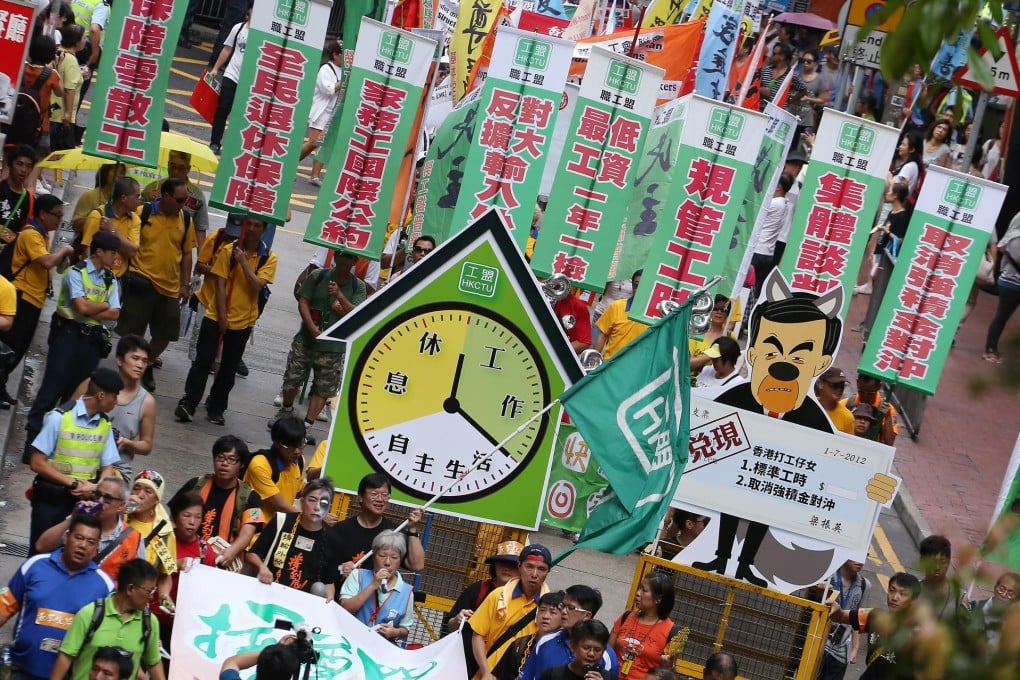Workers united, but unions are split on holiday reform
FTU says Labour Advisory Board will clear way to standard paid days off, but rival lawmaker is determined to push his own bill through Legco

As the city's two leading labour groups marched for workers' rights yesterday, a rift was revealed in their fight to achieve standard paid holidays.
Both the Beijing-loyalist Federation of Trade Unions and the pan-democratic Confederation of Trade Unions feel aggrieved that while many workers enjoy 17 public holidays a year, under the labour laws only 12 are statutory holidays - meaning employers can choose not to give staff the day off on the other five.
Before the Labour Day march yesterday, FTU chairman Stanley Ng Chau-pei said the provision was discriminatory. "This is unfair for workers … And it is artificially dividing society," he said.
But he dropped a strong hint that the FTU's six lawmakers would not support CTU-backed lawmaker Lee Cheuk-yan's plan to draft a personal Legislative Council bill to "unify" the statutory and public holidays.
Referring to the body of which he is a member, Ng said: "We are pushing for the unification [of the two holidays] in the Labour Advisory Board, and the government is starting to move, so I hope [a consensus can be reached there] before it comes to Legco."
However, as Lee led the CTU's Labour Day march from Victoria Park to the government's headquarters at Admiralty in the afternoon, he accused the board of dragging its feet and insisted his plan would work.
Lee, of the Labour Party, said his understanding was that "the government has stopped its work as there is no consensus in the board, and we don't know how long we have to wait for the board [to endorse the plan]".
